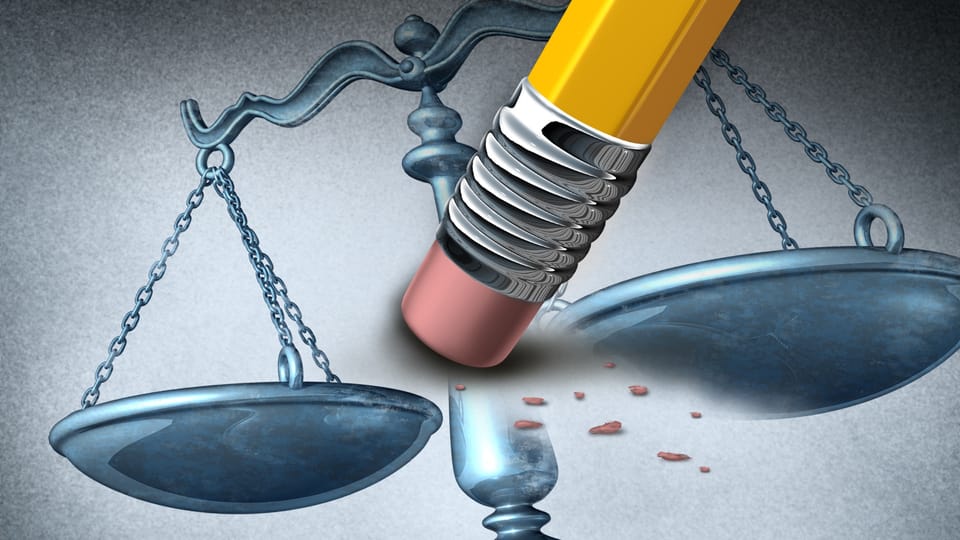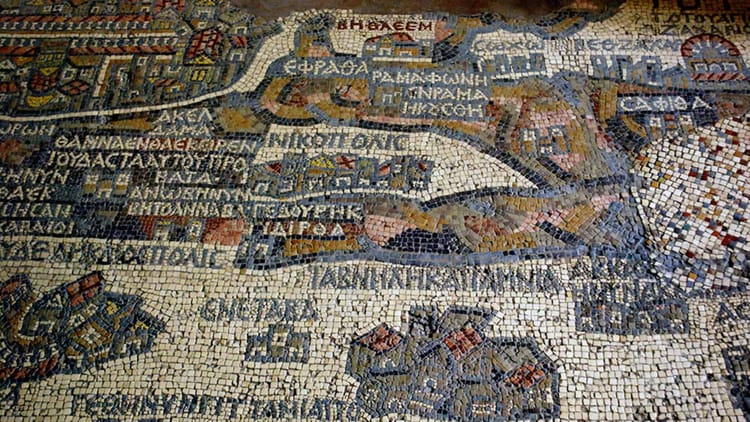Injustice and Hope (Micah)

Big Idea: God cares about issues of injustice. God judges those responsible. But God will pardon those who turn to him.
How would you like to be called a minor player?
Minor sounds so dismissive, like you’re unimportant. Athletes get sent down to the minors. Actors get minor parts in a show. We refer to underage people as minors, meaning that you don’t have all the same rights as an older person. We would all probably feel upset if someone called us a minor player on the team at work.
So it’s easy to think that, when it comes to the Bible, minor prophets means that they’re unimportant prophets.
We’re working through the Bible this year as a church. We’re right in the part of the story when things get very bleak. God’s raised up a nation through which he’s going to save the world, but this nation has split into two, and neither of them are doing very well.
It’s around this time that God sent a series of prophets to Israel and Judah. We call them major prophets and minor prophets. You have major ones, like Isaiah, Jeremiah, Lamentations (usually associated with Jeremiah), Ezekiel, and Daniel. But you’ve also got twelve minor prophets.
You may think that these minor prophets matter less. It sounds like minor means that they’re, well, minor. But they’re not. That’s one reason why so many people who read the Bible can’t tell you much about the minor prophets. There are so many of them. It’s hard to keep track of them. And besides, why should we pay attention to a minor prophet anyway?
But the word minor only has to do with the size of the book, not its importance. As we saw last week with Amos, and we’re going to see this week with Micah, the term minor doesn’t mean unimportant. It just means that they’re small. The book that we’re looking at today is just seven chapters, 105 verses. And yet we’re going to see that, although the size of Micah’s book is minor, his message is major and still speaks to us today.
The Message of Micah
So who is Micah?
We don’t know a lot about him. We learn in chapter one that he’s from Moresheth, about 40 kilometers southwest of Judah.
We also read that he served in the time of “Jotham, Ahaz, and Hezekiah, kings of Judah (1:1). That means around 2700 years ago. Verse 1 also tells us that his message was for both Samaria and Jerusalem — Samaria, the capital of Israel, and Jerusalem, the capital of Judah. So Micah’s message is for all of God’s people.
So what does Micah have to say to Judah, and Israel, and us? If I were to summarize his message, I’d say that there are three things that he wants us to know.
God Cares
One of the questions we all wrestle with is: does God really care about the poor? When we read the news, it’s hard not to feel overwhelmed with the needs out there. Right now, there are 110 million people who are refugees, asylum seekers and internally displaced persons around the world. That’s enough to fill the Rogers Centre over 2,000 times. That’s a lot of people. Does God care?
And that’s not even the full picture. Closer to home, we see issues of injustice and poverty too. Canada is one of the wealthiest countries in the world, and it’s also one of the most water-rich. That’s why I was surprised to learn that 90 First Nations communities in Ontario don’t have access to safe drinking water.
Even closer to home, we’ve got a lot of people in our city who are struggling with food insecurity, homelessness, and mental illness. The United Way reports that the number of poor Toronto neighborhoods is rising at a rapid rate. The income gap is widening and neighborhood poverty has intensified.
Does God care about this? Does God care about issues of justice and poverty? Micah answers: he does.
These people are supposedly God’s people, but the godly are not to be found: they are swept from the land. Instead, murder is widespread. Rulers are corrupt. Justice is perverted through bribery. It’s a rich man’s world!
The rot of this land has gotten so bad that people cannot trust each other, not even spouses. The family has disintegrated. (Mark Dever)
Micah makes a couple of accusations against them, particularly the leaders.
First, he says they’ve become rich through theft and greed.
They covet fields and seize them,
and houses, and take them away;
they oppress a man and his house,
a man and his inheritance.
(Micah 2:2)
God is not good when leaders abuse their power to exploit the poor.
The other accusation is this: the leaders and even the prophets worked together to create systems of injustice.
Hear this, you heads of the house of Jacob
and rulers of the house of Israel,
who detest justice
and make crooked all that is straight,
who build Zion with blood
and Jerusalem with iniquity.
Its heads give judgment for a bribe;
its priests teach for a price;
its prophets practice divination for money…
(Micah 3:9–11)
It’s one thing to face a corrupt leader. It’s another thing to encounter a corrupt system. Does God care about this? Micah says he does. God is on the side of the poor. He cares when injustice is done. That’s why he says these famous words in Micah 6:8:
He has told you, O man, what is good;
and what does the LORD require of you
but to do justice, and to love kindness,
and to walk humbly with your God?
God cares about the poor and victims of injustice, and we should too. James Montgomery Boice said this:
Strange to say, however, in an age which boasts of thriving evangelical churches and more than fifty million persons who identify themselves as having had a “born again” experience, American church leaders have had very little to say to the city and its sins.
God cares about this, and we should too. In Micah 6:8, Micah doesn’t ask God’s people for anything new. He asks them to follow the commands that he gave hundreds of years earlier. God cares about issues of justice and poverty, and we should too.
God Judges
What’s God’s response to those who practice injustice? He will judge. I don’t want to spend too much time on this, because we got a flavor for it last week when we looked at Amos.
But just a preview of what’s coming. A very short time after Micah started prophesying, the Assyrians captured Israel and sent the people of Israel into exile. A few decades later, Judah was captured and exiled too. Why? Micah tells us.
Therefore I will make Samaria a heap in the open country,
a place for planting vineyards,
and I will pour down her stones into the valley
and uncover her foundations…
I will again bring a conqueror to you,
inhabitants of Mareshah;
the glory of Israel
shall come to Adullam.
Make yourselves bald and cut off your hair,
for the children of your delight;
make yourselves as bald as the eagle,
for they shall go from you into exile.
(Micah 1:6, 15-16)
Why was Israel sent into exile? God’s judgment. Micah builds the case that God is just to judge Israel. In fact, it would be unjust for God not to judge Israel.
One of the messages that we can easily lose these days has really stood out to me as I’ve read the Bible: don’t mess with God. Yes, God is gracious, but don’t ever think that we can presume on God’s grace. As Mark Dever says, “God wanted wrong rebuked and he would ensure that judgment came. He would use foreign military powers. He would use a decaying culture. He would do it himself.”
The reason why? Because sin is so serious. As Dever says:
If you are a non-Christian, I expect that the book of Micah might seem severe to you. But then, the reality of sin is severe. Separating ourselves from God is severe. Every sin that we commit, according to the Bible, is a personal affront to God, a rebellion against his authority, a refusal of his wisdom, and a rejection of his love … God wants to rebuke wrong, especially the wrongs among his own people.
God cares about victims of poverty and injustice, and he will discipline and judge those who claim to be his followers, but who pervert justice. God cares, and God will judge.
But there’s one more really surprising thing in this book.
God Will Restore
The hard part for prophets is that God often uses them to judge sin. It’s not an easy role for a prophet! Sometimes we struggle to read the prophets because they can seem so negative, even when the judgment is warranted.
Micah has its fill of hard things, but what really stands out to me is the hope that you find in Micah. It’s hopeful for people like you and me who need hope, who feel the heaviness of our sins and God’s judgment.
Micah contains some of the beautiful prophecies of restoration and hope.
I will surely assemble all of you, O Jacob;
I will gather the remnant of Israel;
I will set them together
like sheep in a fold,
like a flock in its pasture,
a noisy multitude of men.
(2:12)
It shall come to pass in the latter days
that the mountain of the house of the LORD
shall be established as the highest of the mountains,
and it shall be lifted up above the hills;
and peoples shall flow to it,
and many nations shall come, and say:
“Come, let us go up to the mountain of the LORD,
to the house of the God of Jacob,
that he may teach us his ways
and that we may walk in his paths.”
(4:1-2)
Notice how specific he gets about our hope:
But you, O Bethlehem Ephrathah,
who are too little to be among the clans of Judah,
from you shall come forth for me
one who is to be ruler in Israel,
whose coming forth is from of old,
from ancient days.
(5:2)
Hundreds of years before Jesus was born, Micah gives us amazing details about Jesus. Our hope has a name. His name is Jesus.
Some prophets contain a lot of words of judgment and only a few words of hope. Not Micah. Micah heaps hope on top of hope in this book. Our sins aren’t the final word.
Micah gives us two reasons to hope. The first is God’s character.
Who is a God like you, pardoning iniquity
and passing over transgression
for the remnant of his inheritance?
He does not retain his anger forever,
because he delights in steadfast love.
He will again have compassion on us;
he will tread our iniquities underfoot.
You will cast all our sins
into the depths of the sea.
(7:18–19)
What is God like? It’s in his nature to pardon our sins, to show us his steadfast love. He is “a God merciful and gracious, slow to anger, and abounding in steadfast love and faithfulness, keeping steadfast love for thousands, forgiving iniquity and transgression and sin, but who will by no means clear the guilty, visiting the iniquity of the fathers on the children and the children’s children, to the third and the fourth generation” (Exodus 34:6-7).
If you ever wonder if it’s in God’s nature to forgive you, wonder no longer. God’s character is to forgive.
But there’s another reason to hope, and it’s God’s promises.
You will show faithfulness to Jacob
and steadfast love to Abraham,
as you have sworn to our fathers
from the days of old.
(Micah 7:20)
God made promised to Abraham to bless the world. He’s not going to change his mind.
There’s no God like God. No one else offers grace instead of judgment. God is willing to forgive sins and show mercy. Micah looks forward to a time when God’s people would turn in repentance to him and find God ready to forgive and pardon their offenses.
Have you done this? I love the song we sing sometimes that sings of the grace that God offers us through Jesus:
What patience would wait as we constantly roam
What Father, so tender, is calling us home
He welcomes the weakest, the vilest, the poor
Our sins they are many, His mercy is more
God cares about issues of injustice. God judges those responsible. But God will pardon those who turn to him. What a God. What a hope.
Lord, help us to care about the things you care about us. Help us to realize that you judge sin. Help us to turn away from our sins and find hope in you, because who is a pardoning God like you? In Jesus’ name we pray. Amen.





